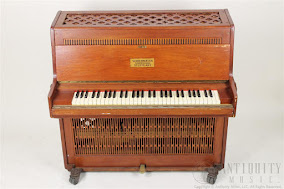Constitutional Challenge: Appellants contended that the administrative trademark judges (ATJs) who sat on the Board panel were appointed in violation of the Appointments Clause of Article II of the Constitution, and therefore the Board's decision must be vacated. The Director of the USPTO intervened to argue that the appointments were lawful.
Appellants relied on U.S. v. Arthrex, Inc., 141 S. Ct. 1970 (2021), wherein the Supreme Court held that the administrative patent judges (APJs) of the Patent Trial and Appeal Board (PTAB), because they exercised unreviewable authority in deciding ex parte review proceedings, were acting as principal officers of the United States. Under the U.S. Constitution, principal officers must be appointed by the President and confirmed by the Senate, and since APJs were not so appointed and confirmed they were acting unlawfully. Appellants argued that the ATJs were likewise principal officers of the United States, and were unconstitutionally appointed.
In Arthrex, the Court solved the problem by making PTAB determinations reviewable by the Director of the USPTO, observing that this approach would "follow the almost-universal model of adjudication in the Executive Branch" and "aligns the PTAB with the other administrative body in the PTO, the Trademark Trial and Appeal Board." 141 S. Ct. at 1987. The CAFC observed that the Court "thus effectively confirmed that in light of the Director’s authority over decisions of the TTAB, the statutory scheme governing TTAB decision-making is not subject to the Appointments Clause problem the Court identified with regard to the PTAB."
Moreover, the role of the PTO Director was addressed in the Trademark Modernization Act of 2020 (TMA), which explicitly confirmed the Director's authority to review decisions of the TTAB. "The current trademark statutes plainly render ATJs 'inferior officers,' making their appointments by the head of a department, i.e., the Secretary of Commerce, lawful."
However, the Board decided the instant cancellation proceeding in 2019, prior to enactment of the TMA, but the CAFC pointed out that the Director, by reason of the Intellectual Property and Communications Omnibus Reform Act of 1999, "has for more than twenty year had the authority to direct any Board case be decided by a single member of the TTAB, either initially or on rehearing." Since the Director is a standing member of the TTAB, "he enjoys the authority to designate himself as the sole member of a TTAB rehearing panel, thereby allowing him to review and reverse decisions of a panel of ATJs."
The end result of the Court’s decision in Arthrex was to create a regime very similar to the trademark statutory scheme in place as of 2019. There was at that time no limitation on the composition of TTAB panels, see 15 U.S.C. § 1067, and the Director had broad authority to control TTAB proceedings, see id. § 1123 (2000 ed.). The Supreme Court held highly similar conditions sufficient to render APJs inferior officers despite the “shall issue and publish” language of section 318(b). The same result necessarily follows with respect to ATJs and the language of 15 U.S.C. § 1092 (2006 ed.).
And so, the CAFC rejected Appellant's challenge to the legitimacy of the TTAB panel that decided this case.
False Association: The CAFC ruled that the TTAB had properly applied the four-factor test for determining whether a registration should be canceled under Section 2(a) because it falsely suggests a connection with another person or entity. It saw no error in the Board's finding that the name "Schiedmayer" points uniquely and unmistakably to the appellee, and it concluded that substantial evidence supported the Board's findings that the Schiedmayer name enjoyed fame and reputation in the field of keyboard instruments, that appellants' pianos were sufficiently similar to appellee's celestas, and that appellants intended to create a connection with appellee.
And so, the CAFC affirmed the Board's decision, summing up its view of the case as follows:
Taking a step back from the doctrinal principles discussed above, a fair characterization of what has gone on in this case is that Sweet 16 has falsely labeled its pianos with a German-sounding name to suggest that its pianos are high-quality European instruments, rather than lower quality instruments made elsewhere. And in so doing, Sweet 16 has not chosen just some arbitrary German-sounding name to stencil on its no-name pianos. Instead, it has chosen a name long associated with a German manufacturer of high-end keyboard instruments, a manufacturer that still produces celestas. The inference is inescapable that Sweet 16 is attempting to take advantage of the reputation of Schiedmayer products by suggesting that its Schiedmayer-branded pianos were made by a Schiedmayer company and can therefore be assumed to be of high quality. That is the essence of “falsely suggest[ing] a connection” with another entity under section 2(a) of the Lanham Act. To put the matter succinctly, as the Second Circuit did more than a century ago, “No one has a right to apply another’s name to his own goods.” Aunt Jemima Mills Co. v. Rigney & Co., 247 F. 407, 410 (2d Cir. 1917).
Read comments and post your comment here.
TTABlogger comment: I don't know about you, but for me the sound of the celesta gets to be annoying after about two minutes.
Text Copyright John L. Welch 2021.
Labels:



0 comments:
Post a Comment